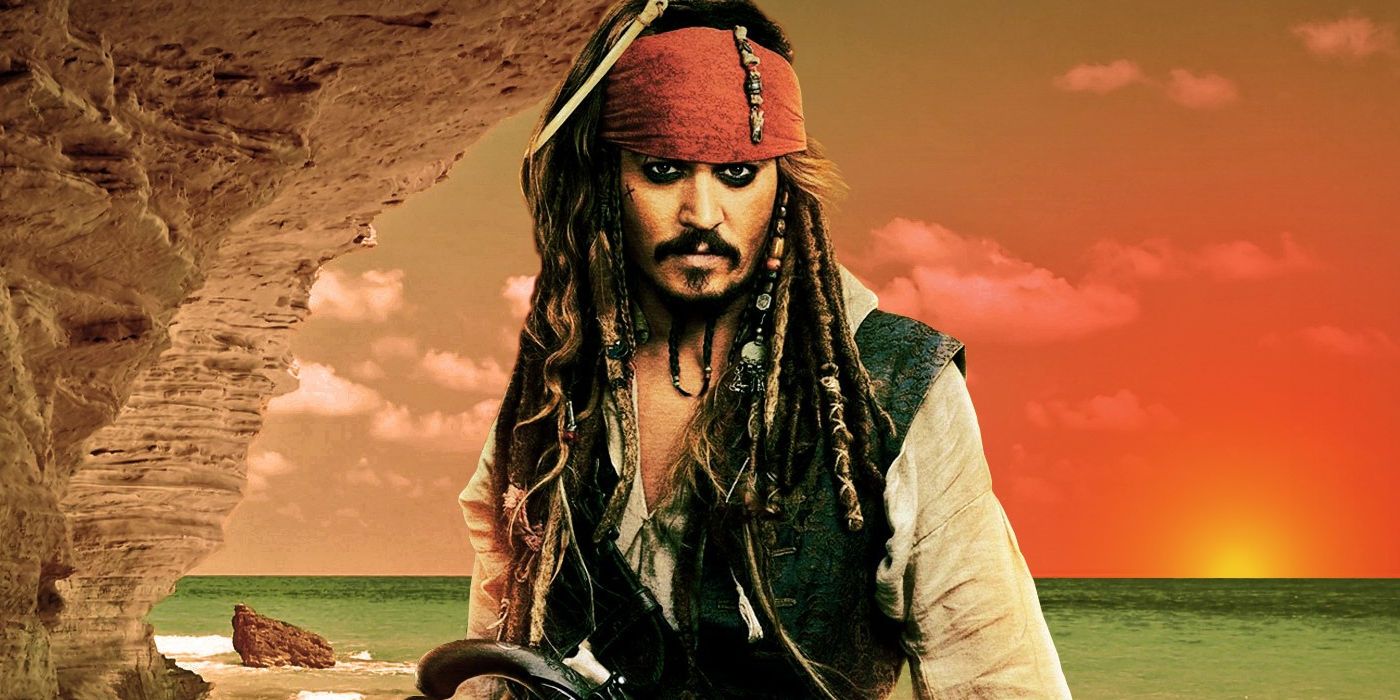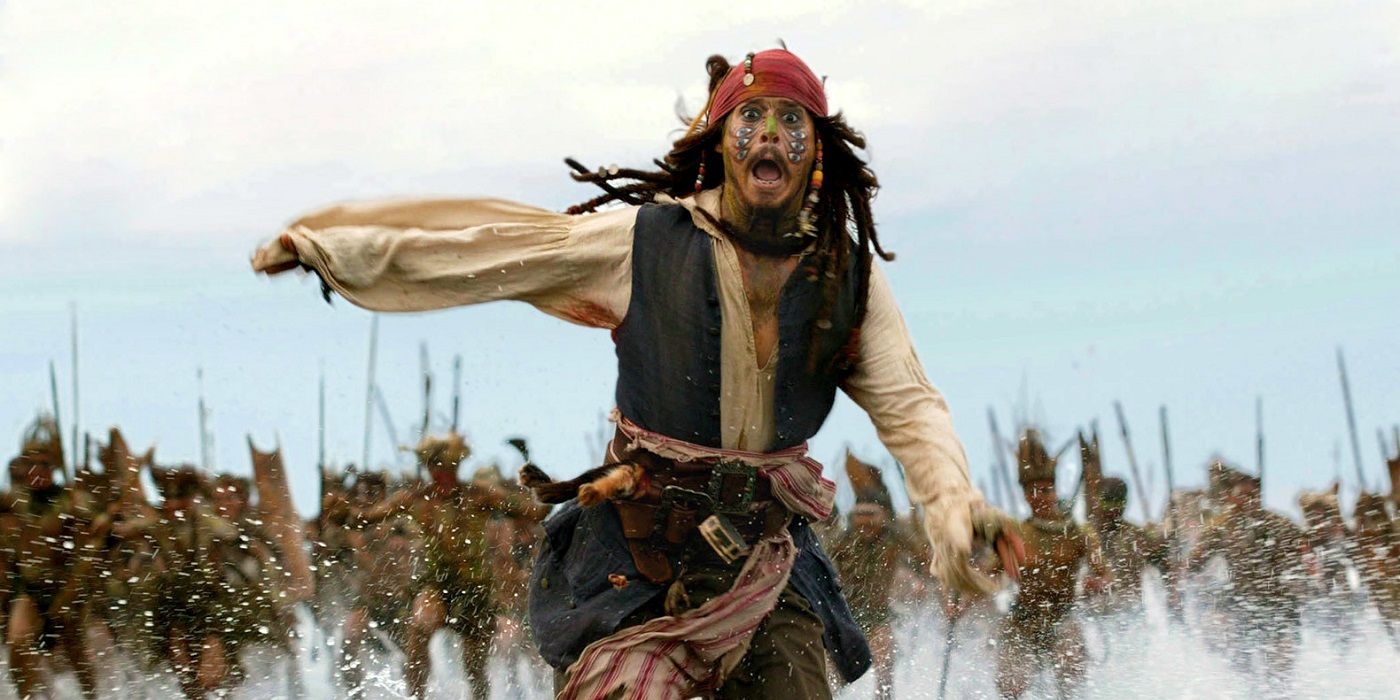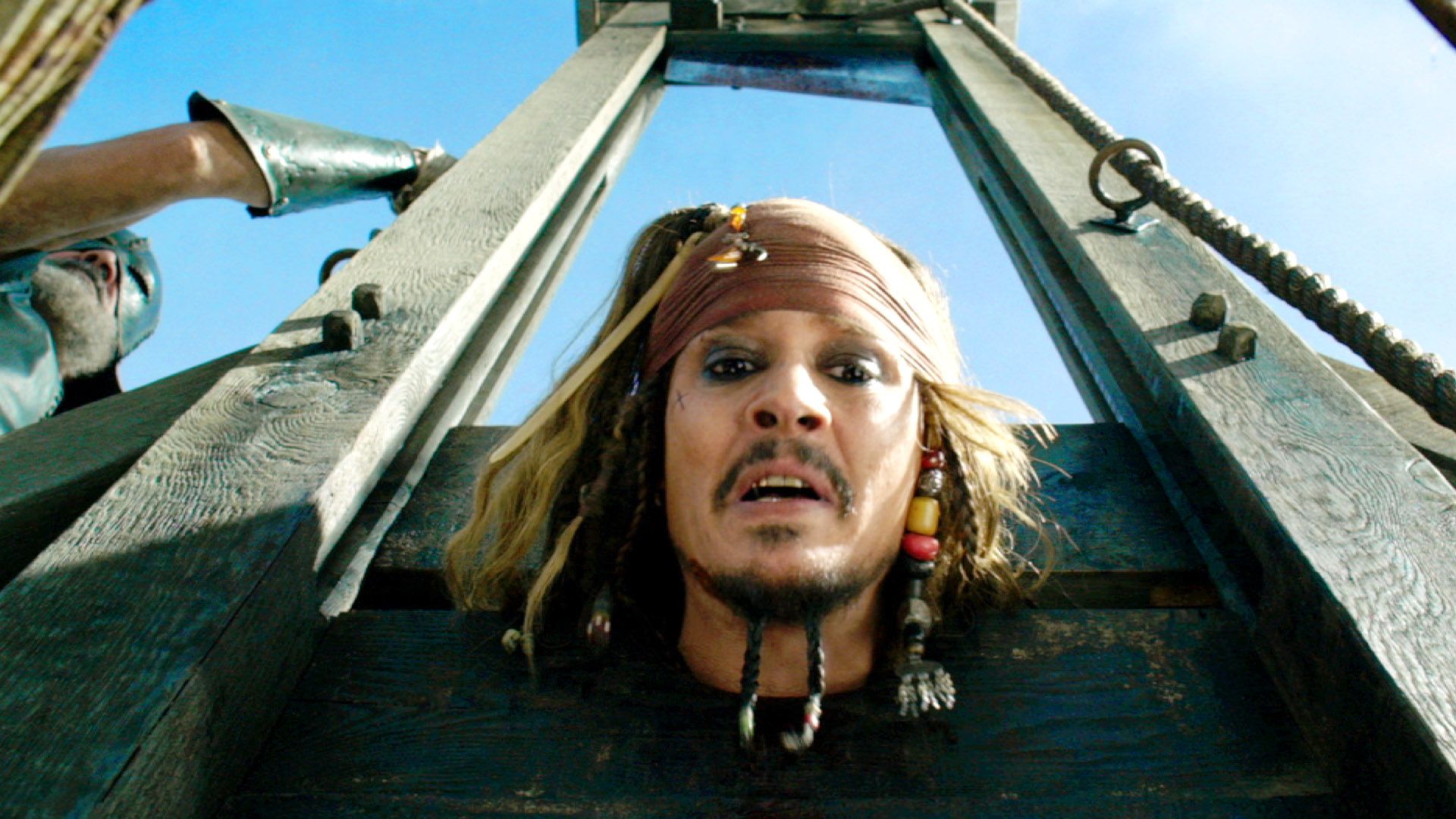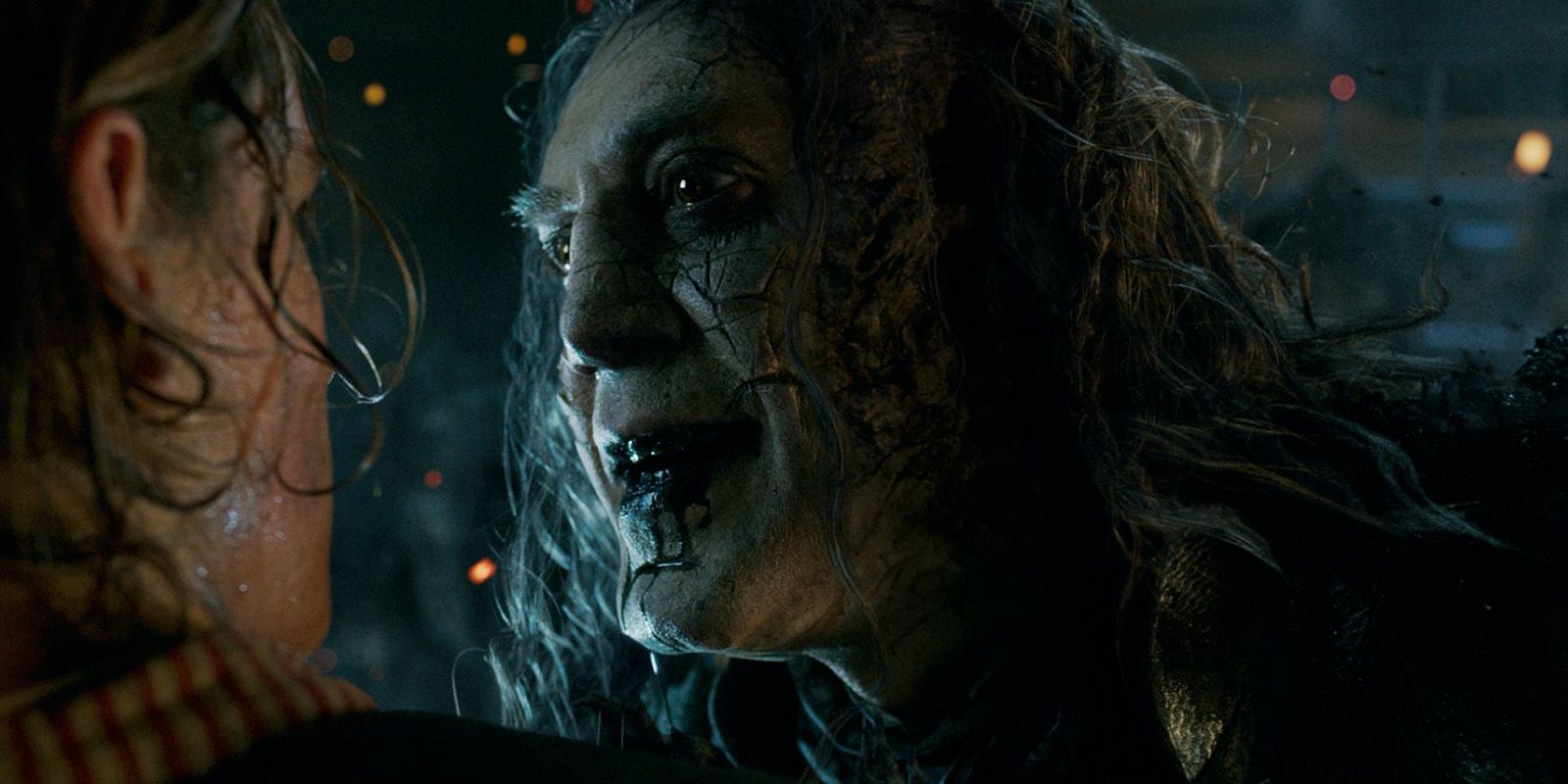The Pirates of the Caribbean franchise looks set to soon move on from Johnny Depp’s Jack Sparrow, but there’s no way that the series can function without the actor’s contributions to the iconic character. Since the series began in 2003 with Gore Verbinski’s The Curse of the Black Pearl, the Pirate of the Caribbean franchise has centered around Depp’s portrayal of the feckless antihero Captain Jack Sparrow.
Due to the actor’s continuing legal battle against his ex-wife and alleged abuser Amber Heard, Depp has stepped down from the upcoming Fantastic Beasts movies, after previously appearing in the first two installments. He also looks set to be replaced in the upcoming rebooted Pirates of the Caribbean 6, and while it’s understandable that the star would take time away from work for personal reasons, the franchise will struggle to find an identity of its own without Depp's contributions.
Sans Depp's portrayal of Sparrow, the Pirates of the Caribbean franchise is likely to have a hard time continuing without the star at its center, as Depp has been central to its success in terms of style, tone, and story since the first film debuted. It’s unlikely that Depp will return to the role, but it’s equally unlikely that Pirates of the Caribbean will be able to establish a new identity in his absence as he has established a unique persona that will be difficult to emulate, and this character has gone on to shape the style of the series.
He Set The Tone of the Franchise
When The Curse of the Black Pearl was first released, expectations were not unduly high for the Pirates of the Caribbean franchise. Disney had fought with Depp’s decisions to play the Jack Sparrow character as a campy, over-the-top drunkard from early on, and the movie was preceded by the critically maligned The Haunted Mansion the same year, another star vehicle based on a popular Disneyland ride. But, ironically, it was the character decisions that the studio objected to which won over critics and audiences alike, with Depp being singled out as the clear standout of the sprawling cast. As good as Geoffrey Rush is in The Curse of the Black Pearl, it’s Depp’s campiness and wild-eyed verve that elevated the franchise from being a carbon copy of 1993's comparable Disney adventure The Three Musketeers or The Mummy movies. While the following Pirates of the Caribbean sequels could never match his loose, easy charm, the performance nonetheless set the tone for the films that followed.
The second movie, Dead Man’s Chest, was criticized for its lighter, more cartoony tone and more zany, over-the-top action sequences, but both of these decisions have their roots in Depp’s character choices and freewheeling, off-the-cuff silliness. Although the movies couldn’t match the actor’s style, there’s still a clear attempt to not only center Jack Sparrow more but also to lighten the tone of the movies themselves to better mirror his flippant, devil-may-care charm. It’s an issue epitomized by the franchise's fifth installment, Dead Men Tell No Tales, whose extended, drab opening action sequence is designed to put Depp’s antihero front and center for the entirety of its action, where the first film split its screen time between Will Turner, Elizabeth Swann, and Jack Sparrow.
Jack Sparrow Carried The Sequels
Speaking of the movies never matching Depp, even the worst Pirates of the Caribbean installments benefit from this approach of putting the actor front and center. He’s the only redeeming aspect of 2011’s critically abhorred On Stranger Tides, where the absence of Bloom and Knightley proves that a compelling cast of supporting characters was necessary despite Depp’s obvious star power. The actor’s failed attempts to recreate the magic of Jack Sparrow in later flops such as The Lone Ranger and Mordecai proves that the formula of Pirate of the Caribbean isn’t infallible, but the lack of fan interest in Kaya Scoledario’s Dead Men Tell No Tales heroine and Sam Claflin's On Stranger Tides protagonist proves that Depp's performance is central to the appeal of the series.
While the later Pirates of the Caribbean movies used real-life nautical legends in an attempt to establish an identity outside of anchoring themselves around Jack Sparrow, these attempts were too little, too late, and it’s now a fool’s errand to try changing this formula after five outings. At World’s End may have introduced nine Pirate lords and all manner of associated lore to the franchise, but a solid ten minutes of its runtime were devoted to Jack interacting with himself in purgatory while another ten went to him interacting with Keith Richards’ portrayal of his estranged father. The mythology never landed because the series never strayed far from Jack Sparrow, and as such, any reboot will be left with a massive missing ingredient at the core of its action.
There Isn’t Enough Lore
While Depp’s absence would give the rebooted Pirates of the Caribbean series a chance to delve further into its lore, the fact is the franchise doesn't have all that much to delve into. Ian McShane and Javier Bardem’s villains from On Stranger Tides and Dead Men Tell No Tales, respectively, could have been interesting additions to the franchise, but both are only established in relation to Jack Sparrow, and as such, would make for compelling antagonists in his absence. Meanwhile, the original trilogy’s Barbossa can’t come back from the dead a second time, and that leaves only Kiera Knightley and Orlando Bloom to carry the franchise. But while the pair have chemistry, their love story isn’t all that compelling without Jack present to lighten the tone, particularly when the Pirates of the Caribbean series has now given them not one, but two, endings.
Alternatively, the series could opt for a wholesale continuity reboot and not only replace Depp, but also all of the supporting cast and characters. However, this approach is also unlikely to win over audiences as it would mean dropping more minor characters like Calypso and Davy Jones who, while they couldn't carry an entire installment as the villain, do have more room for further exploration. Many of these figures fall in the unfortunate chasm of being too interesting to drop entirely, but not memorable enough to carry a Depp-free movie. This in turn leaves the franchise creators in an unenviable position of attempting to reboot a property without its central selling point, meaning there’s an argument to be made that the Pirates of the Caribbean franchise should be allowed to end with the retirement of Depp’s Sparrow. As the heart of the series, it’s hard to picture a Pirates of the Caribbean movie without Depp’s Sparrow, and as a result, it could be time for the series to come to a close rather than attempting to replace its libertine hero.




